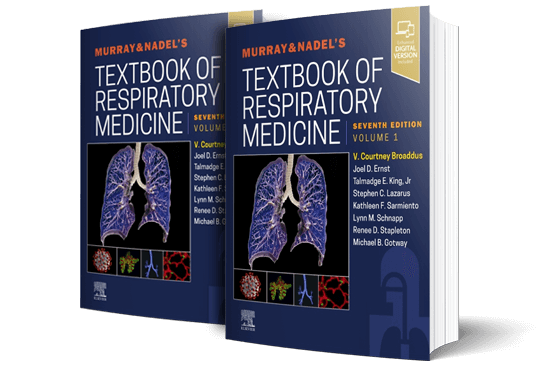International Women’s Day: Celebrate the achievements of female medical book authors

How do you feel about being honored as a female author in science?
It is indeed an honor to be recognized for writing and for science, two of my favorite things. Before and during my entire career, I have loved to learn about biology and medicine, and I love to teach and share my enthusiasm. I hope that, by understanding the underlying mechanisms, we can all be more creative and successful in our fields.
What would your advice be to other female scientists wishing to become authors?
Find something that you are passionate about and wish to communicate. And, then write so that non-scientists will understand the beauty and fun of science.
What did you find most challenging when writing Murray & Nadel's Textbook of Respiratory Medicine?
I am the editor-in-chief and the most challenging part is working with the many editors and authors to produce a consistent, clear and engaging work. Each contributor to the book comes with expertise in the subject but with different writing skills and styles. The aim is to edit in order to create a consistent message, without losing the individual voice of each writer.
What do you regard as the most significant achievement for women in science within the past decade?
This is an almost impossible question, so I’ll answer a related question. That is, which woman most inspired me. That would be Rachel Carson. What a story. A zoologist who worked at the US Bureau of Fisheries, she became horrified by the harm caused by DDT and other toxins used with abandon in the US. After extensive research, she wrote a masterpiece, Silent Spring, that changed the course of history. And, it wasn’t easy - she was bullied by the chemical companies and slandered widely. Ultimately, her truth and clear passionate writing won the day, leading to a new era of action to regulate toxins in the ecosystem. She showed what a scientist writing for the lay public can do.
“Without understanding the underlying mechanisms and the gaps in our knowledge, we will not be able to see a new path or create novel therapies.”
Which area of pulmonology do you feel warrants increased attention and awareness in the future?
Our textbook starts with the basic science topics underlying the clinical topics that follow. I would say that the basic science is the part that warrants increased attention and awareness for our trainees. With the pressure of time, training gives less time for science. As a result, medical students and residents have less understanding of the mechanisms of disease. They tend to seek the treatment guidelines and algorithms of treatment without knowing why these treatments work. Without understanding the underlying mechanisms and the gaps in our knowledge, we will not be able to see a new path or create novel therapies.
If you were to recommend just one chapter or section of your book to readers, which would it be and why?
The scientific section of the book. We have worked especially hard to make these chapters updated and clear. These topics cannot be found elsewhere. I once polled our pulmonary trainees to ask whether the new edition of the textbook should drop the science chapters and focus only on the clinical chapters. I expected they would agree. Consistently, they said no; the science chapters were unique, useful and important. And, they relied on these chapters in studying for their board exams.
What would you consider to be the most important message for readers to take away from this chapter?
I wrote the chapter on Pleural Physiology and Pathophysiology, as a new chapter for the textbook. The most important message is true for this chapter and many others. If you understand the physiology, you are more likely to understand the pathophysiology, in this case, the formation of pleural effusions. With the fundamental knowledge, the topic becomes much less mysterious and hopefully new ideas about diagnosis and treatment can emerge.
“I was a science major at Duke University where Dr. Steve Wainwright sparked in me a realization that science was creative.”
Would you like to share any personal experiences that have inspired you and your many honorable contributions?
I was a science major at Duke University where Dr. Steve Wainwright sparked in me a realization that science was creative. It wasn’t meant to be rote or boring, it wasn’t about memorization. I was inspired to make a career in science. Through my own research career and publications, and my editing and work in textbooks, I have had a rewarding experience with curiosity and discovery.


